Olive Leaf Extract: 11 Health Benefits And How To Make It
Harness the power of olive leaf extract and nourish your locks from root to tip.
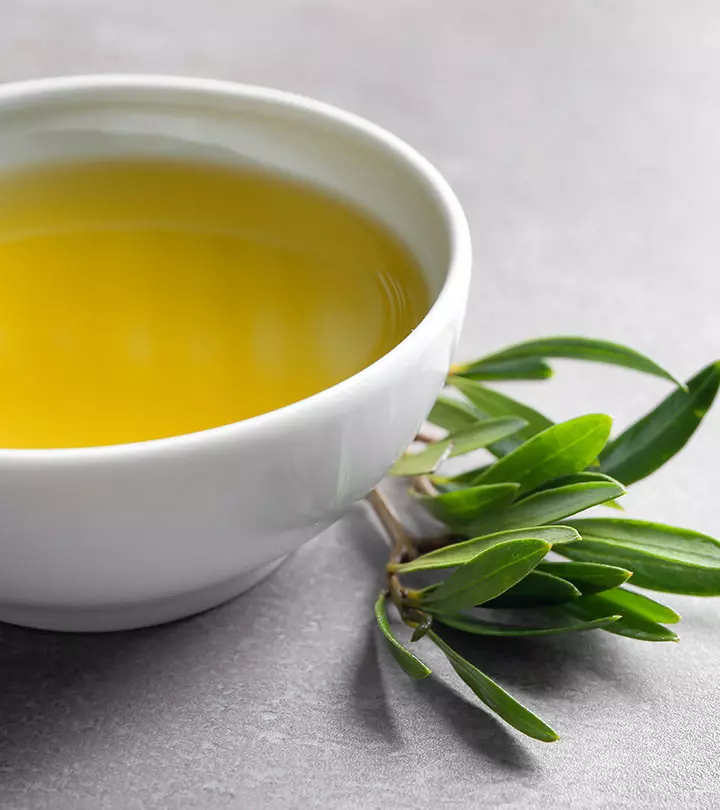
Image: Shutterstock
You might be aware of the health benefits of olive oil and olive fruit. But did you know that olive leaf is also a powerhouse of many health benefits? It is a natural remedy deeply rooted in Mediterranean traditions, and is thus gaining recognition for its therapeutic properties and ability to support overall health. This ancient remedy is derived from the leaves of the olive tree and has been used for centuries to promote well-being and address various health concerns.
The benefits of olive leaf extract are numerous and can be attributed to its antioxidants, polyphenols, and flavonoids. Also, the water- and alcohol-based leaf extracts have anti-inflammatory, antimicrobial, anti-atherosclerotic, and anti-allergic properties.
This article explores the potential health benefits, composition, preparation process, and possible side effects and risks of olive leaf extract. Keep reading.
In This Article
What Is Olive Leaf Extract? What Is Unique About Olive Leaves?
There are many known health benefits of olives and olive oil. But the leaves of olive trees are no less
! Olive leaf extract is extracted from olive leaves by soaking them in alcohol or water for an extended period.
The goodness of olive leaves gets extracted into the solvent in the form of biochemicals. Oleuropein, hydroxytyrosol, tyrosol, etc. are a few active molecules that are responsible for the therapeutic importance of these leaves (1).
Olive leaves are traditionally known to prevent cardiac disease and hypertension. They can protect membranes from lipid oxidation and inflammation. The extract can also improve lipid metabolism, exhibit antiviral properties, reduce cancer risk, etc. (2).
This is why olive leaf tea is a classic in the Mediterranean cuisine and tribes.
The following sections will fill you in with details about the benefits, recipes, and risks of this Greek wonder.

Scroll down!
Key Takeaways
- Olive leaf contains oleuropein, a phenolic compound that helps improve vascular functions.
- Incorporating olive leaf into your routine can help you manage your weight because of its biochemicals.
- Olive leaves also help treat inflammatory diseases and skin issues, potentially help combat HIV infection, and promote hair growth.
What Are The Benefits Of Olive Leaf Extract?
1. Might Lower The Risk Of Hypertension And Cardiovascular Diseases (CVDs)
Olive leaves contain a phenolic compound called oleuropein. It makes up about 6-9% of the dry matter of olive leaves. The higher the oleuropein concentration, the greater the antioxidant property (3).
Administering olive leaf extract to experimental mouse models showed hypotensive effects (3).
It might lower systolic and diastolic blood pressure individuals with hypertension (4).
This oleuropein-rich extract improves vascular function by reducing the stiffness in arteries. These observations highlight the cardioprotective and anti-inflammatory nature of olive leaf extract.
Consuming it daily might lower atherosclerosis, stroke, heart attack, disease, blood pressure (hypertension), and other cardiovascular diseases (3), (4).
2. Might Combat HIV Infection
HIV infection triggers the expression of genes controlling cell death (apoptosis), stress, and DNA damage. Using olive leaf extract can reverse several such changes caused by HIV infection (5).
Olive leaf extract treatment can restore different cell signaling pathways in infected cells. It can also inhibit cell-to-cell transmission of HIV, which is a critical step in the life cycle of a virus (5).
This might happen because oleuropein interacts with an HIV-1 protein, gp41. Disabling this protein can prevent the spread of infection of HIV into host cells (6).
3. Eliminates Candida And Other Fungi
Hydroxytyrosol, tyrosol, oleuropein, and derivatives have potent antifungal properties. These compounds can kill fungi, molds, and yeast, especially the species that affect your respiratory and GI (gastrointestinal) tract (7).
A study was conducted on lab-cultured Candida albicans with aqueous olive leaf extracts. Within 24 hours of treatment, about 15% of Candida were destroyed. Olive leaf extract was toxic to Candida albicans and Candida neoformans (7).
Processed extracts of olive leaf can thus replace synthetic antimicrobial compounds as preservatives. However, this extract was ineffective against certain yeast species (8).
4. Treats Skin Diseases, Wounds, And Acne
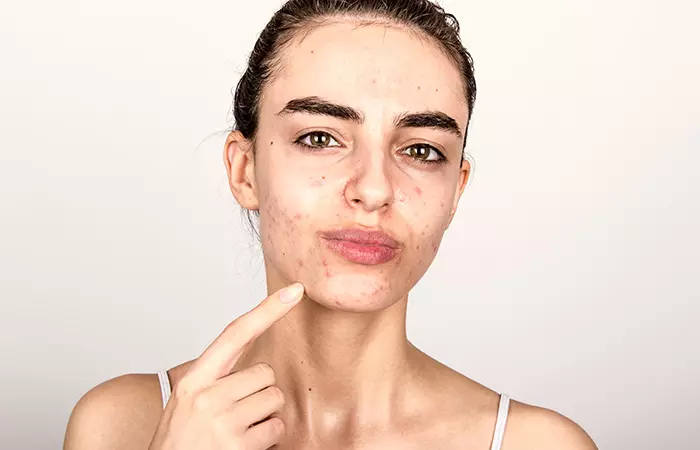
Oleuropein is an anti-inflammatory and antioxidant agent. It stimulates collagen fiber synthesis and inhibits pro-inflammatory cell infiltration. This extract also scavenges free radicals in the affected area to speed up wound healing (9).
Applying olive leaf extract two to three times a day can reduce acne and pimples significantly. Several topical homeopathic formulations include this extract. It can treat cold sores, eczema, burning, itching, and eruptions on your skin (10).
This vulnerary activity is attributed to the biochemical composition of the olive leaves. Luteolin and 7-O-glucoside were found to be the active principles. Other compounds responsible for these activities include oleuropein, other secoiridoids, and flavonoids (11).
 Quick Tip
Quick Tip5. Might Aid Weight Loss In Obese Individuals
Olive leaf extract exerts anti-obesogenic effects at a molecular level, according to animal studies. It can regulate the expression of genes involved in fat accumulation in your body. Olive leaf-supplemented diet also reduced the food intake by 26% in treated mice (12).
This visceral fat cut-down might lead to reduced plasma levels of free fatty acids (FFA). This means lesser lipid oxidation in the liver. Ultimately, this leads to a drop in plasma triglyceride (particularly, LDL) levels (12).
The olive leaf biochemicals – hydroxytyrosol, luteolin, and caffeic acid – can aid healthy weight loss. Incorporating it into your routine can also help in effective weight management (12).
6. Reduces Inflammation And Can Help Treat Inflammatory Diseases
Olive leaf phytochemicals like hydroxytyrosol, tyrosol, oleuropein, and oleocanthal show anti-inflammatory and antioxidant effects. The olive leaf extract treatment lowered the pro-inflammatory chemical messengers (like TNF-α) in rat models (13).
Another study demonstrated the effect of olive leaf extract on injured rabbits. The rabbits were supplemented with drinking water and olive leaf extract (500 mg/kg/day). Healing in rabbits treated with this water was quicker than in their untreated counterparts. This proves the anti-arthritic effects of olive leaf compounds (14).
Olive leaf extracts contain oleuropein, oleuropeoside, and other polyphenols. These chemicals can help to manage inflammatory diseases like colitis, inflammatory bowel disease (IBD), rheumatoid arthritis, and osteoarthritis (14).
Samantha Ushedo, a nutritionist and blogger, shared her experience of using olive leaf extract to treat her sore throat. She writes, “I accepted the fact that my body was trying to give me a message and did what I knew I needed to do. I slept, relaxed, drank nutrient rich green smoothies, ginger tea and of course, pounded back the olive leaf extract. By Monday morning, my sore throat was gone and I felt good as new (i).”
7. Possesses Antiproliferative Properties
Olive leaf extract has higher diversity in biochemical composition than extra virgin olive oil. Cancer cell models show that olive leaf polyphenols protect against DNA damage caused by free radicals (15). This means reduced cancer risk.
The leaf extract was found to be effective against prostate and breast cancers. It also impedes the proliferation of pancreas, colorectal, leukemia, and lung cancer cell lines (15).
Here’s a mind-blowing fact. The olive leaf polyphenols like oleuropein can discriminate between cancer and normal cells. They trigger apoptosis (programmed cell death) only in cancer cells and not normal cells (15). Talk of targeted therapy!
8. Stimulates New Hair Growth
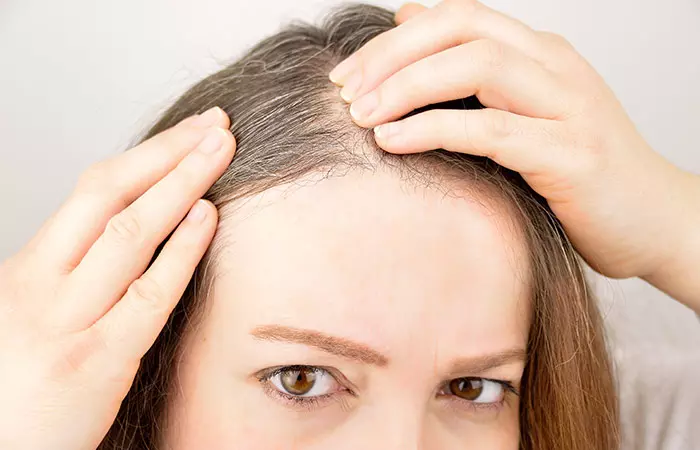
In mouse studies, topical application of olive leaf extract induced significant hair growth. The oleuropein in this extract could interact with dermal papilla cells to stimulate hair growth (16).
The dermal papilla cells are responsible for the growth and differentiation of epithelial cells. They instruct the epithelial cells to proliferate, move upward, and divide to form the hair shaft, root, sheath, etc. (16).
Administering oleuropein (0.4 mg/mouse/day) also improved the surrounding skin vasculature. It upregulated the gene expression of KGF, HGF, and VEGF (growth factors). These factors enhance the blood circulation, nurturing the hair follicles in the skin (16).
However, there are physiological differences between mouse and human skin/hair. Hence, these studies might need appropriate auxiliary evidence (16).
9. Protects The Brain And Prevents Cognitive Decline
Olive leaf extract was given to lead-poisoned rats in a study. It reduced neuronal and capillary injury and improved brain function. This extract reduced damage to organelles and the matrix around the capillaries in the cerebral cortex of the rat brain (17).
Olive leaf extract reduces oxidative damage. It boosts the levels of antioxidant enzymes like superoxide dismutase, catalase, and alkaline phosphatase (17).
Oral administration of olive leaf extract may alter brain water content and blood-brain barrier permeability. It blocks pro-inflammatory compounds, lipid peroxidation, and oxidative stress-induced cognitive decline (18).
10. Might Treat Periodontitis And Improve Oral Health
Thanks to the composition of olive leaves, they possess antimicrobial activity against a horde of oral pathogens. The leaf extract inhibited the growth of Streptococcus oralis, Candida albicans, Escherichia coli, Porphyromonas gingivalis, Fusobacterium nucleatum, and Parvimonas micra (19).
Olive leaf extract is often used with other herbal ingredients in dental remedies. They include clove leaf, thyme, grapefruit seed extract, chamomile flower, green tea leaves, Eucalyptus leaf, cinnamon bark, and several essential oils (20).
This herbal remedy is considered safe for humans and animals.
You can find this extract in lozenges, dental chews, candies, beverages, toothpaste, oral gels, and whitening molds (20).
11. Manages Hypoglycemia (High Blood Sugar) And Diabetes
Olive leaf extract is well known as a traditional anti-diabetic and antihyperglycemic herbal drug. One obvious reason behind these effects is the antioxidant activity of olive leaf polyphenols (21).
Olive leaf extract may influence glucose-induced insulin release. It could also increase the uptake of glucose by the surrounding tissues (21).
In clinical trials, subjects treated with olive leaf extract exhibited significantly lower HbA1c and fasting plasma insulin levels. HbA1c is glycated hemoglobin, which is formed when free glucose molecules bind to hemoglobin molecules. HbA1c is indicative of hyperglycemia (22).
By lowering HbA1c levels and improving insulin sensitivity, olive leaf extract can effectively manage the blood glucose homeostasis in humans (22).
12. Manages Cholesterol Levels
Research on rats has shown that olive leaf extract, which is rich in polyphenols, especially oleuropein, inhibits the oxidation of LDL cholesterol (23). The extract may stimulate the production of HDL or good cholesterol and promote a healthier cholesterol profile. A systematic review of a general adult population noted the effects of olive leaf extract on cardiovascular risk factors as positive. Beneficial results were observed in its impact on blood pressure and lipid profile in especially those with hypertension (24). Since more research is warranted in this area, we recommend consulting a healthcare professional for personalized advice to effectively manage your cholesterol levels.
This exhaustive list of benefits proves the leaves of olive are as healthy as the fruit.
What is in these leaves that make(s) their extract a potential health staple?
Scroll down to discover!
Biochemical Composition Of Olive Leaves
The chemical composition of olive leaves depends on several conditions – the origin, climate, moisture content, the proportion of branches on the tree, storage conditions, and soil quality (21).
Generally, most of the therapeutic benefits of olive leaves are attributed to their polyphenolic content.
There are five groups of phenolic compounds mainly present in olive leaves (21):
- Oleuropeosides: Oleuropein and verbascoside
- Flavones: Luteolin-7-glucoside, apigenin-7-glucoside, diosmetin-7-glucoside, luteolin, and diosmetin
- Flavonols: Rutin
- Flavan-3-ols: Catechin
- Substituted phenols: Tyrosol, hydroxytyrosol, vanillin, vanillic acid, and caffeic acid
The most abundant compound in olive leaves is oleuropein. It is followed by hydroxytyrosol, luteolin, apigenin, and verbascoside (21).
The total polyphenol content of olive leaves was determined to be 2,058 mg GAE (gallic acid equivalent). Hence, these leaves have exceptionally high free radical-scavenging (antioxidant) properties (21).
Let’s get to the obvious question.
How To Make Olive Leaf Extract
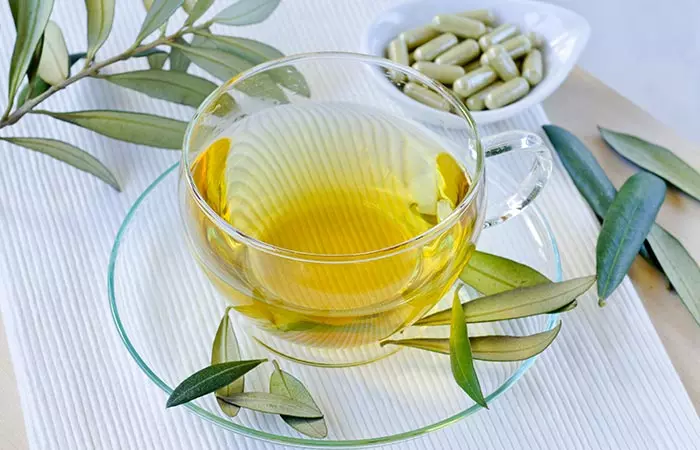
Well, the simplest way of making and taking olive leaf extract is brewing its tea.
All you need to do is:
- Brew the fresh or dried leaves with some water.
- Let it steep for 5-7 minutes.
- Mix in a little sweetener because the tea can be really bitter.
- Drink up!
If you want to give this bitter tea a miss, here’s what you could try.
DIY: Olive Leaf Tincture
What You Need
- Fresh or dried olive leaves
- Vodka (40-45%)
- Clean mason jar
- Knife/food processor
Let’s Make It!
- Wash the leaves well (if they are fresh ones).
- Chop them finely or shred in a food processor and place them in a glass jar.
- Cover the chopped leaves with vodka.
- For fresh leaves, the ratio of leaves to vodka is 1:2 or 3, i.e., if you’re using 8oz. of leaves, you’d need 16-24 oz. of vodka.
- If you’re using dried leaves, the ratio is 1:5.
- Stir well. Seal the mason jar, and let it sit in a dark place for about 2-6 weeks.
- Shake it once in a while and make sure the leaves are all covered by vodka. Add more if you need to.
- Strain the liquid into a dark-colored (amber) dropper bottle.And your tincture is ready!
Do not use it on open/bleeding wounds. Consult your doctor to know about its safety if you are pregnant or lactating.
Alternatively, you can purchase olive leaf extract capsules.
 Quick Tip
Quick TipDosage
- If you are using the olive leaf tincture, add 1-2 drops of it to a glass of water and consume. Consult your physician for a customized dose regimen.
- If you are taking the capsules, you may take one capsule thrice a day. Total intake should range between 500 mg to 1000 mg per day. However, your physician knows the best.
We recommend medical guidance while using olive leaf supplements. This is because there are a few documented adverse effects of this herbal medicine.
Possible Side Effects And Risks Of Olive Leaves
High doses of olive leaf extract might interfere with the activity of antioxidant enzymes. In short, excess of olive leaf extract can become pro-oxidative (25).
It may nullify the effect of in-house enzymes like superoxide dismutase and catalase in eliminating the free radicals (25).
Wild olive leaf extract can interact with several classes of drugs. The leaf polyphenols may alter the permeability and transport of these drugs in the bloodstream (26).
As a result, there could be an increase in the blood levels of these drugs when taken simultaneously with the wild olive leaf extract, thus indicating potential adverse effects that need to be studied (26).
There is inconclusive evidence about the adverse effects of olive leaf extract. Hence, it is best for pregnant and lactating mothers to abstain from using this herbal medicine.
The benefits of olive leaf extract are similar to those of olives. The leaf extract contains antioxidants that are beneficial to health. It may help lower the risk of cardiovascular disorders, reduce inflammation, and boost hair growth. It may also aid in weight loss and boost cognitive function as well. Olive leaf extract can be consumed as tinctures, teas, or capsules. However, excess consumption of the extract can lead to a few side effects. It also may interact with medications or interfere with the functioning of enzymes. If you experience any adverse effects, limit its use and seek medical advice.
Frequently Asked Questions
Can you take olive leaf extract on an empty stomach?
Yes, you can take olive leaf extract on an empty stomach.
Can you take turmeric and olive leaf extract together?
Yes, you can take turmeric and olive leaf extract together.
Does olive leaf extract increase estrogen?
Olive leaves have phytoestrogen properties, which may increase estrogen levels.
Is olive leaf extract good for the flu?
Yes, olive leaf extract may relieve some symptoms of the flu as it contains oleuropein, which improves the immune system function.
Does olive leaf extract help with anxiety?
Olive leaf extract contains oleuropein, which has therapeutic properties that may relieve anxiety.
Olive leaf extract is potentially beneficial for the skin. It is loaded with antioxidants that help protect your skin from harmful radicals and rejuvenate it. Watch the following video to explore its other benefits.
Personal Experience: Source
StyleCraze's articles are interwoven with authentic personal narratives that provide depth and resonance to our content. Below are the sources of the personal accounts referenced in this article.
(i) olive leaf extract to the rescuehttps://sushedo.wordpress.com/
References
Articles on StyleCraze are backed by verified information from peer-reviewed and academic research papers, reputed organizations, research institutions, and medical associations to ensure accuracy and relevance. Read our editorial policy to learn more.
- “Oleuropein in Olive and its Pharmacological Effects” Scientia Pharmaceutica.
- “Olive Leaf Extracts Act as Modulators of the…” Endocrine, Metabolic & Immune Disorders – Drug Targets, US National Library of Medicine.
- “Prolonged Oral Administration of Oleuropein Might Protect…” Iranian Journal of Pharmaceutical Research, US National Library of Medicine.
- “Impact of phenolic-rich olive leaf extract on blood…” European Journal of Nutrition, US National Library of Medicine.
- “Anti-HIV activity of olive leaf extract (OLE) and…” Biomedical And Biophysical Research Communications, US National Library of Medicine.
- “Computational study of bindings of olive leaf…” FEBS Letters, US National Library of Medicine.
- “Evaluation of the antifungal activity of olive…” Current Medical Mycology, US National Library of Medicine.
- “Antifungal activity of olive leaf (Olea Europaea L.)…” Annals of Microbiology, Academia.
- “Evaluation of Effect of Oleuropein on Skin Wound…” Cell Journal, US National Library of Medicine.
- “OLIVE LEAF ACNE REMEDY- topical skin relief liquid” Vitality Works, Inc., DailyMed, US National Library of Medicine.
- “Main Benefits and Applicability of Plant…” Cosmetics, MDPI.
- “Olive Leaf Extract Attenuates Obesity in High-Fat…” Evidence-based Complementary and Alternative Medicine, US National Library of Medicine.
- “Mechanisms of olive leaf extract-ameliorated rat…” Phytotherapy Research, US National Library of Medicine.
- “Therapeutic Effects of Olive and Its Derivatives on…” Nutrients, US National Library of Medicine.
- “Evidence to Support the Anti-Cancer Effect…” Nutrients, US National Library of Medicine.
- “Topical Application of Oleuropein Induces Anagen…” PLoS ONE, US National Library of Medicine.
- “Olive leaf extract inhibits lead poisoning-induced…” Neural Regeneration Research, US National Library of Medicine.
- “The neuroprotective effect of olive leaf extract is related…” Phytomedicine, Elsevier, Academia.
- “High-Level Antimicrobial Efficacy of Representative…” BioMed Research International, US National Library of Medicine.
- “Herbal Remedies for the Treatment of Periodontal…” Recent Patents on Drug Delivery & Formulation, Academia.
- “Olive tree (Olea europaea) leaves…” Special Article, Nutrition Reviews.
- “Olive leaf extract as a hypoglycemic agent in both human…” Journal of Medicinal Food, US National Library of Medicine.
- “Olive leaf extract improves the atherogenic lipid profile…” Phytotherapy Research, Wiley
- “The effects of olive leaf extract on cardiovascular risk factors…” Diabetology & Metabolic Syndrome
- “Effects of high dose olive leaf extract on the hemodynamic…” Journal of the Serbia Chemical Society.
- “Potential Herb-Drug Pharmacokinetic Interactions between…” Planta Medica, US National Library of Medicine.
Read full bio of Lucas Aoun
Read full bio of Swathi Handoo
Read full bio of Ravi Teja Tadimalla
Read full bio of Himanshi Mahajan






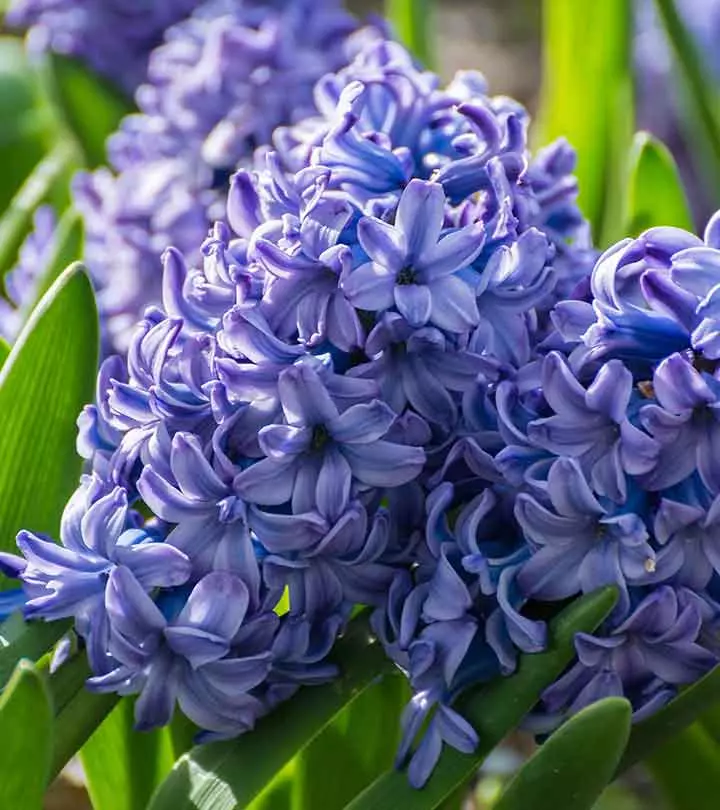
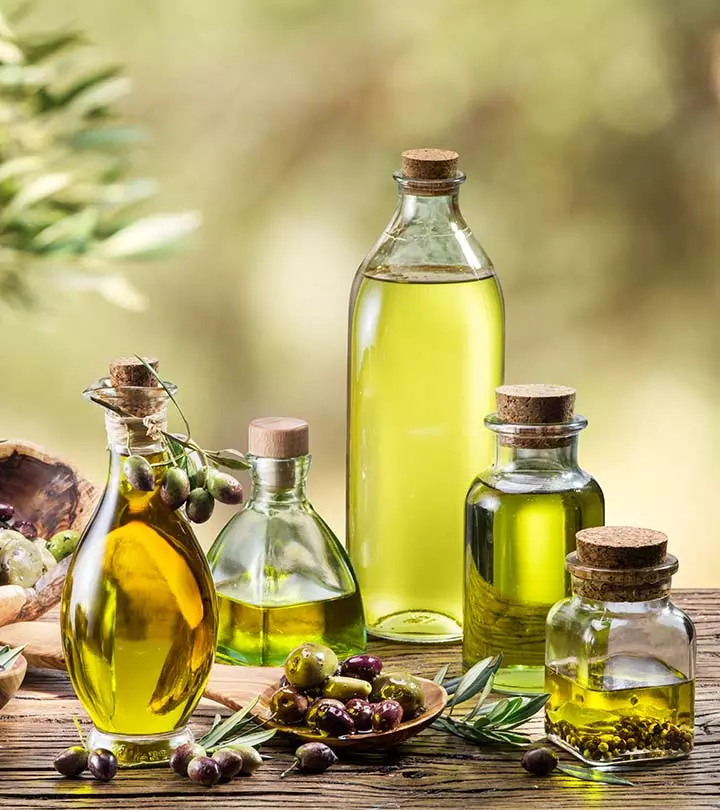
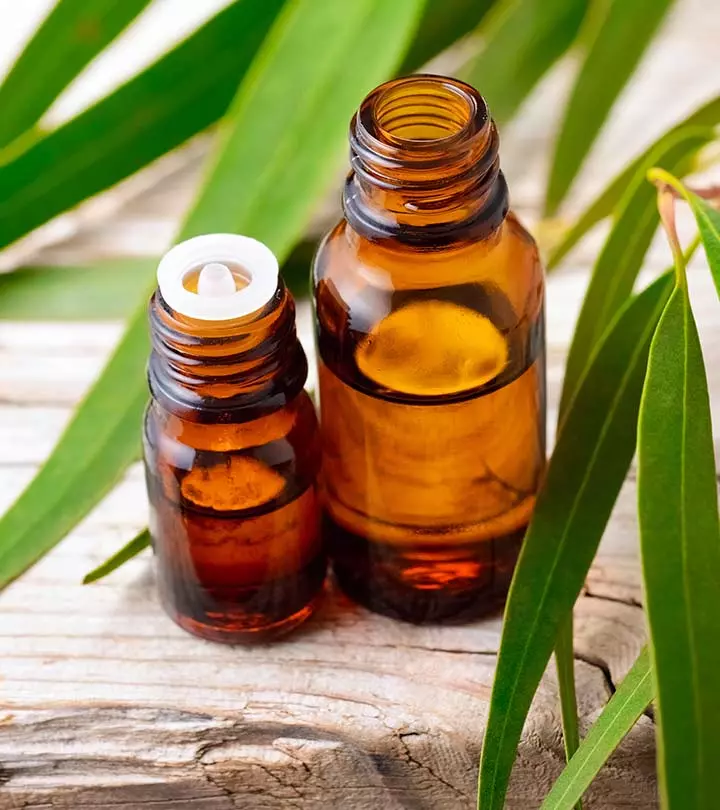
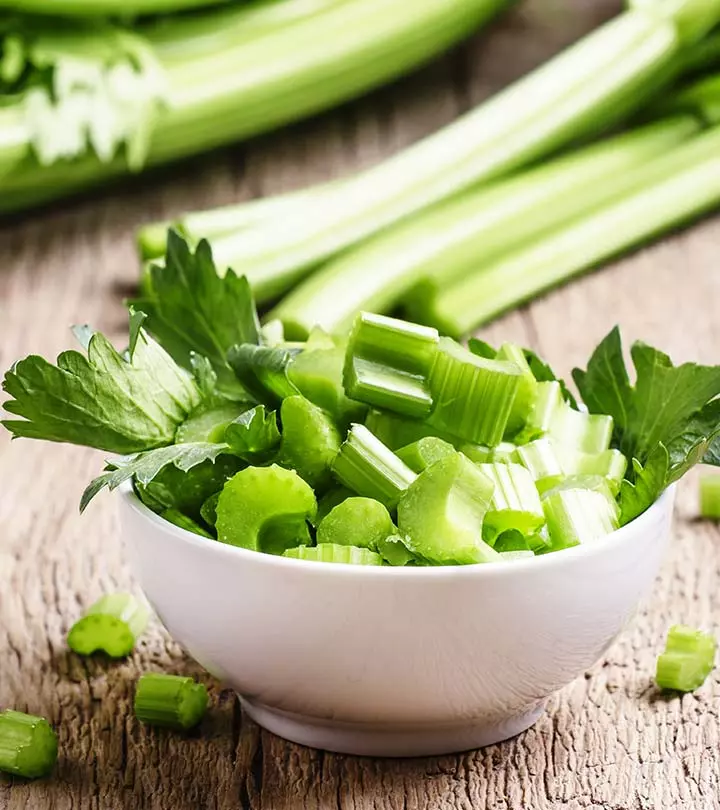
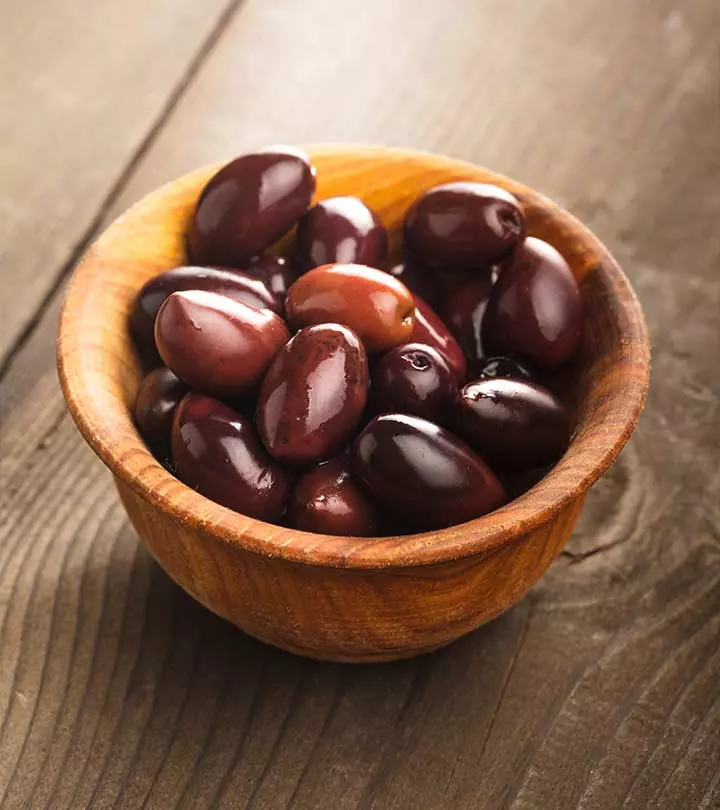
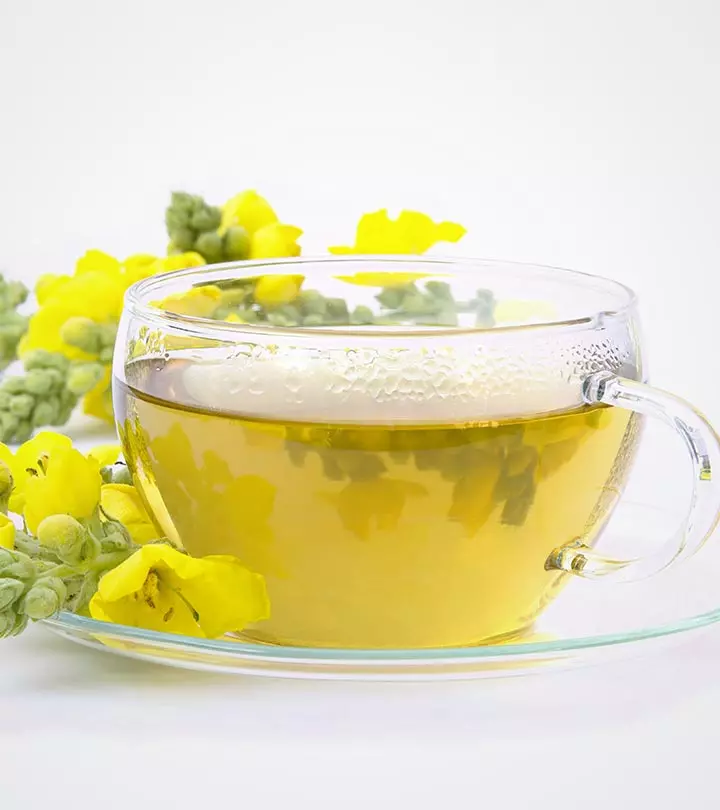
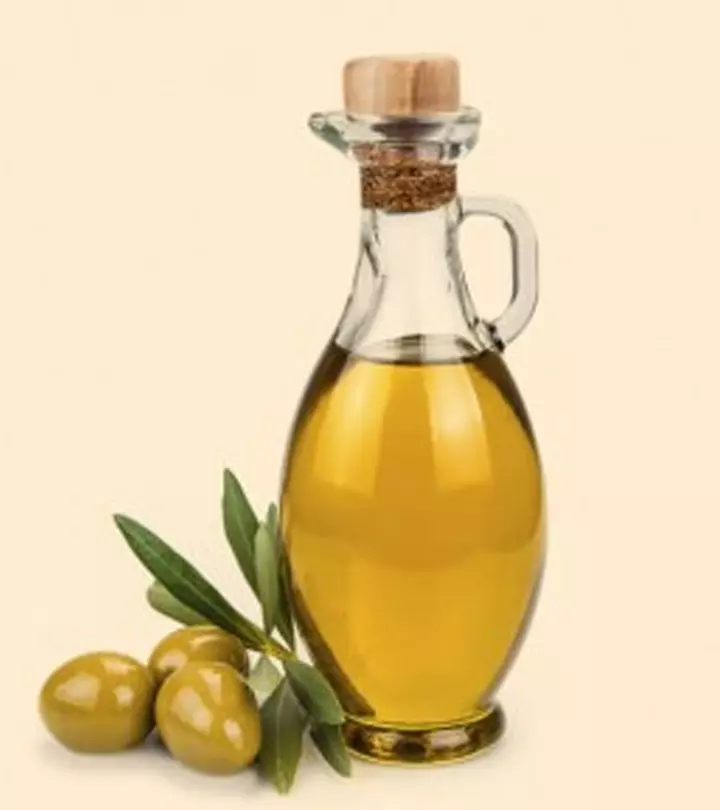
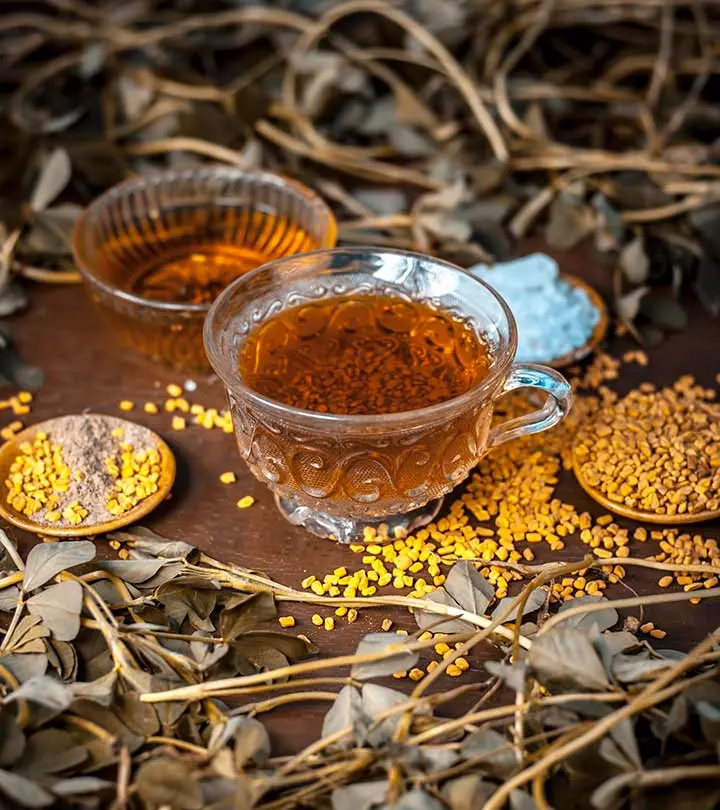

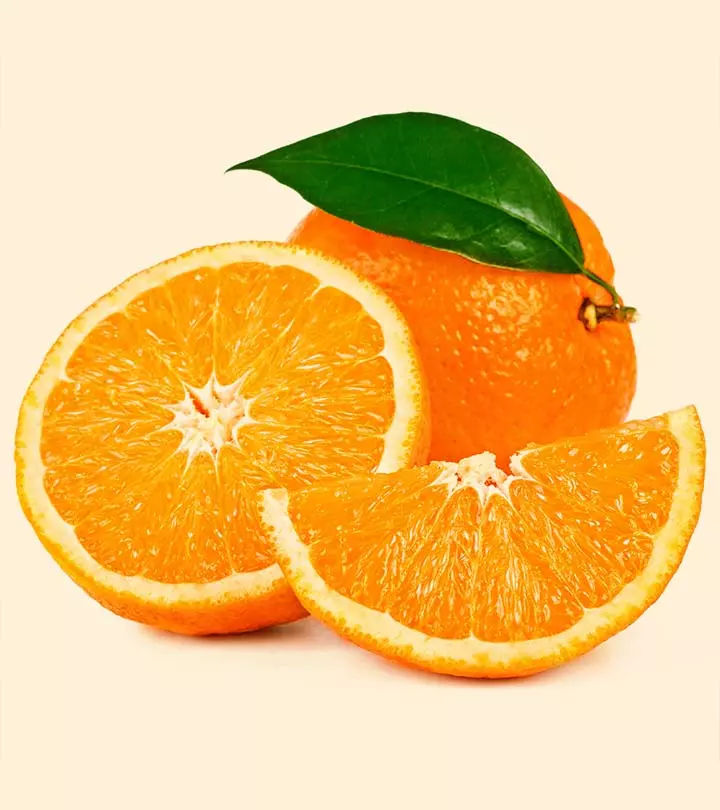
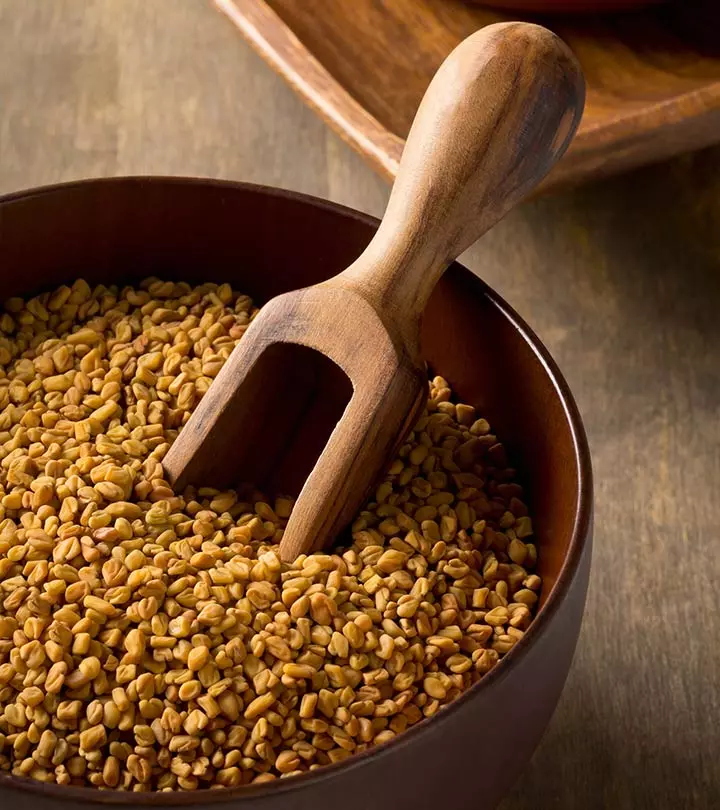
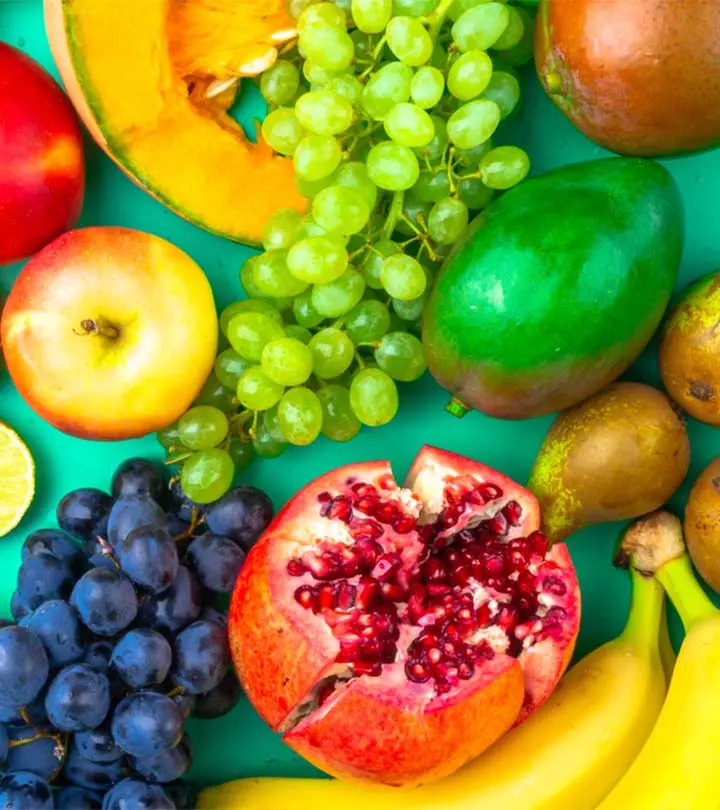
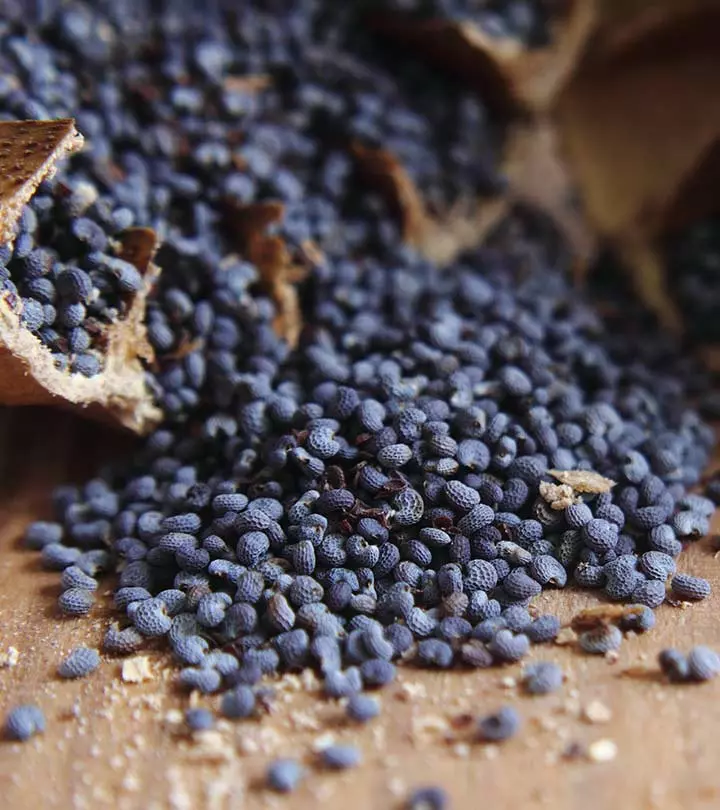
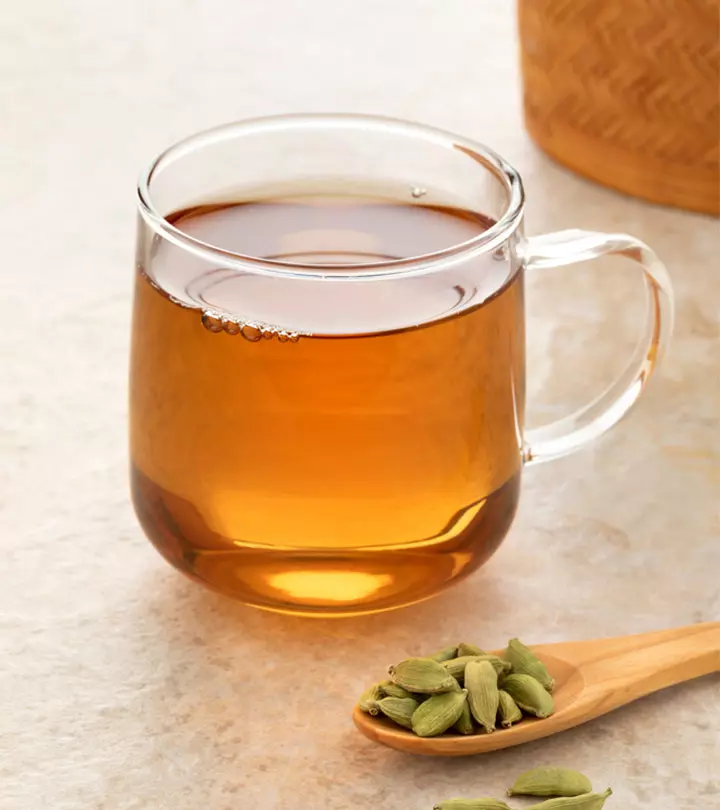
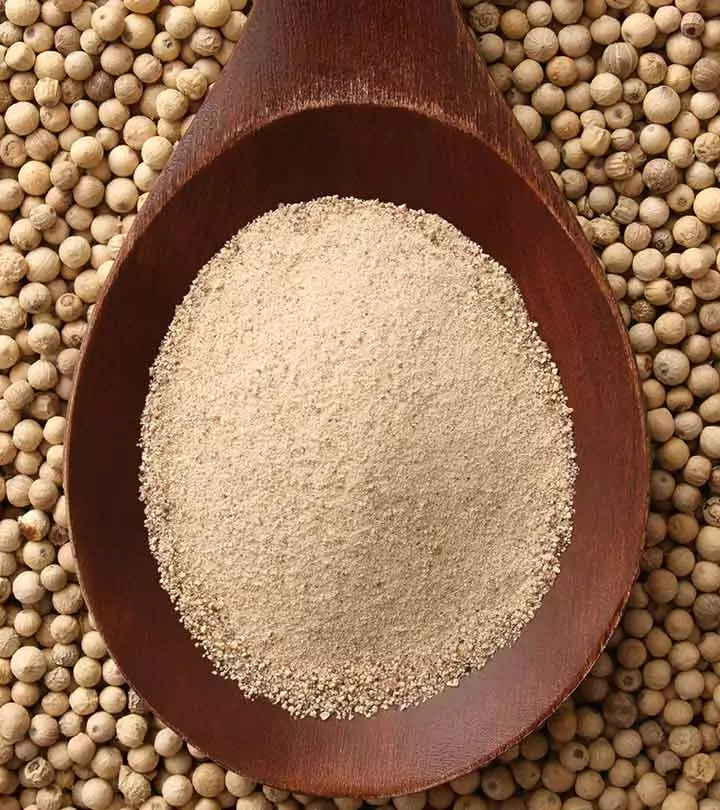
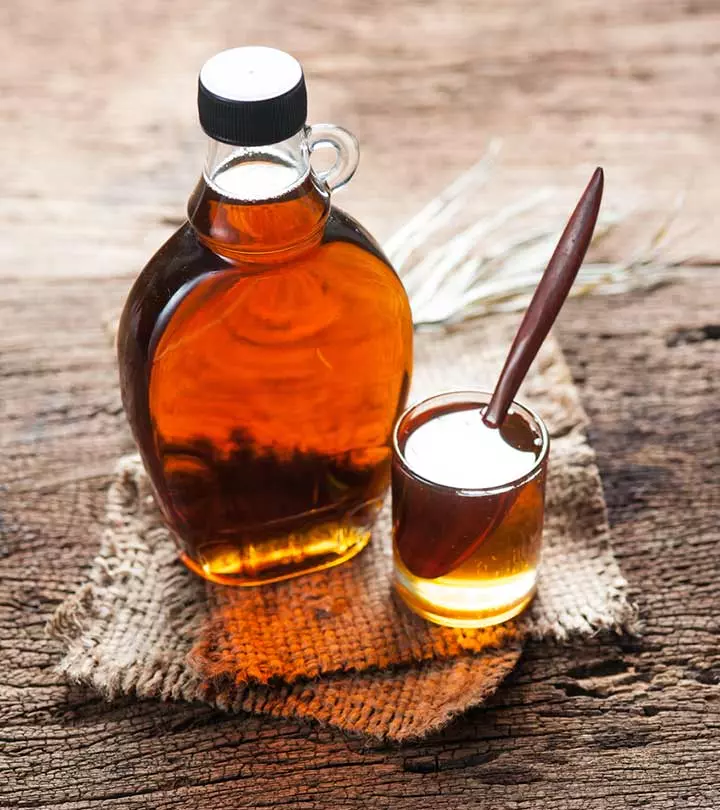
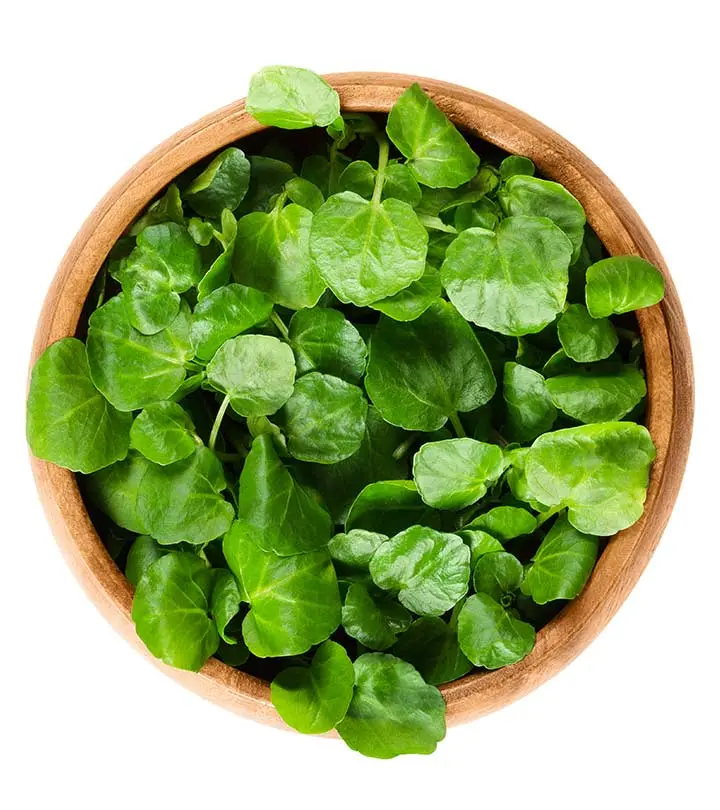
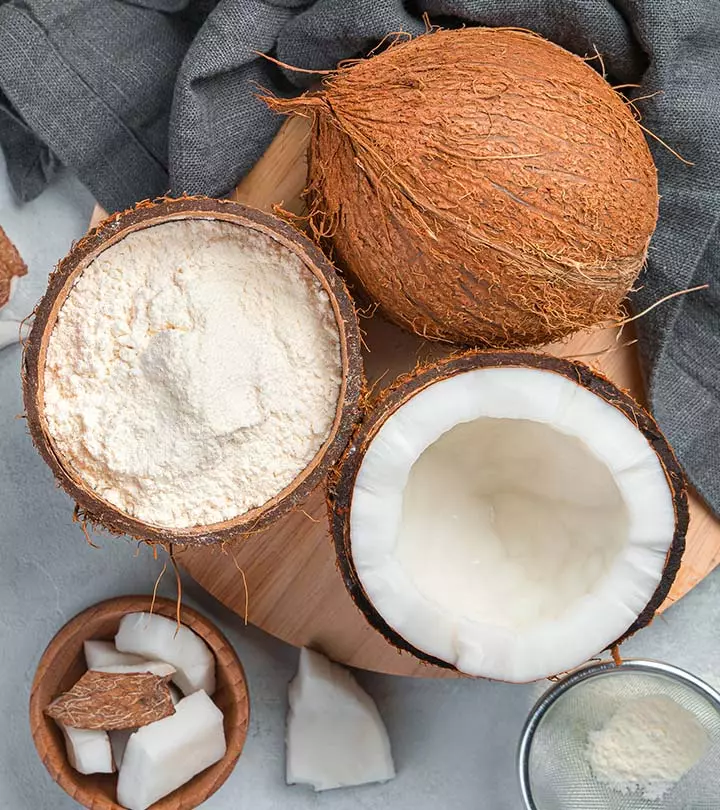
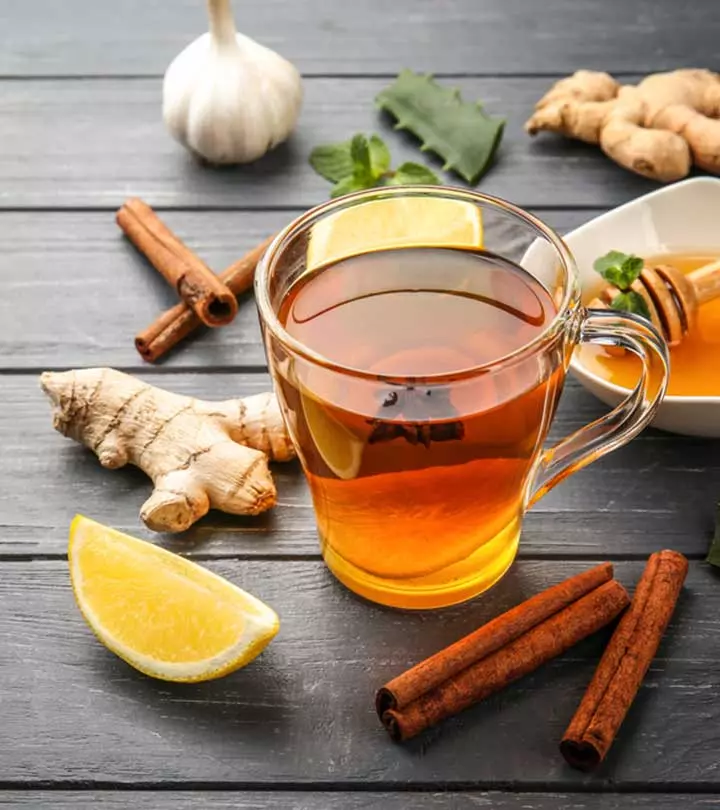

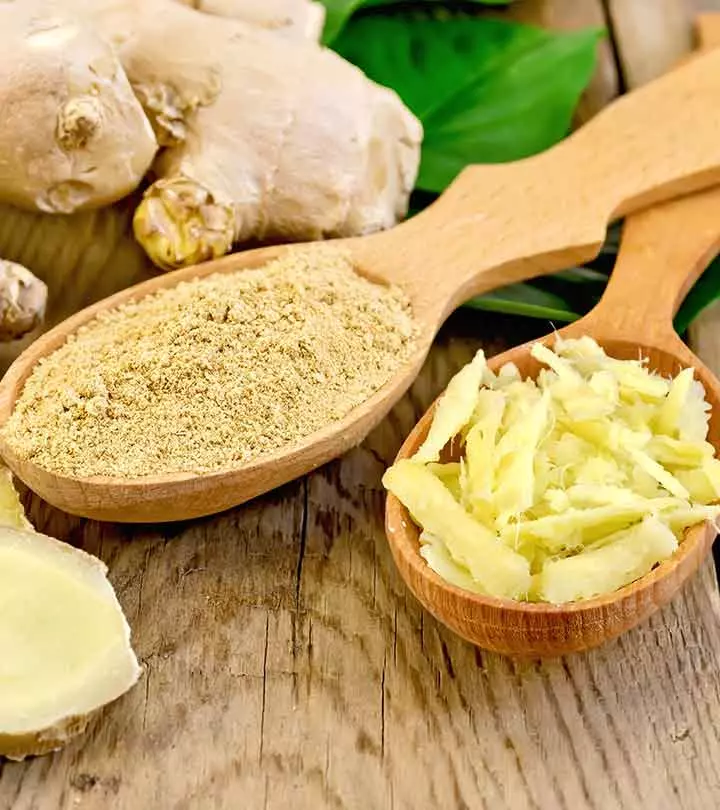
Community Experiences
Join the conversation and become a part of our empowering community! Share your stories, experiences, and insights to connect with other beauty, lifestyle, and health enthusiasts.